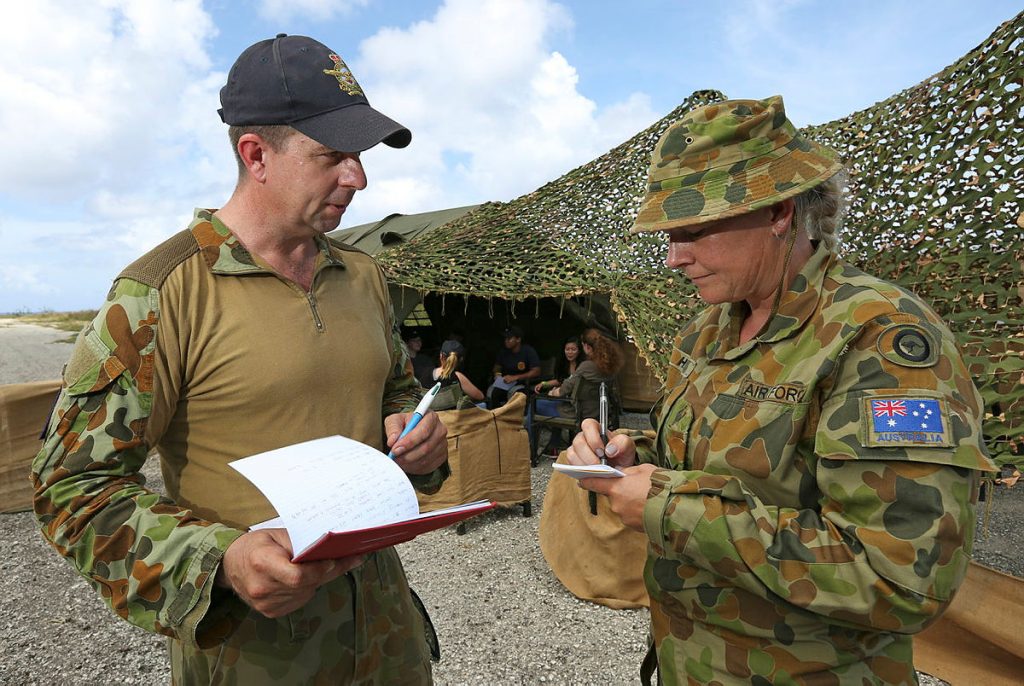
On Wednesday in New York, the UN Security Council held its annual open debate on women, peace and security (WPS). The theme of this year’s debate was ‘from theory to practice’. The first of what are now 10 Security Council resolutions on WPS was passed more than 20 years ago, but there remain ongoing issues with translating them into concrete results. In the 2016 debate, the German representative eloquently articulated the problem, saying: ‘The shortcomings in the implementation of the women and peace and security framework are due not to a lack of words, but to a lack of action.’
In his remarks to the Security Council this week, UN Secretary-General Antonio Guterres spoke soberly about international regression on the WPS agenda:
Conflicts are raging. Tensions are rising. Coups are erupting. Authoritarianism is on the march. The nuclear threat has mushroomed. Climate chaos is inflaming security challenges. And mistrust is poisoning global politics—weakening our ability to respond.
The figures speak for themselves on the dire state of our world … The grim backdrop gives renewed urgency to efforts to ensure women’s full and meaningful participation in peace and security. Twenty-three years after this Council adopted resolution 1325, women’s participation should be a default, not an afterthought.
But that is not the case.
Australia waited several years for the release of its second national action plan on WPS, a whole-of-government policy document with implementation responsibilities for the Department of Home Affairs, the Department of Defence, the Australian Federal Police and other agencies. Although the first plan was produced by the Office for Women, in the Department of the Prime Minister and Cabinet, the second one came from the Department of Foreign Affairs and Trade, perhaps because it was released at a time when the minister for women was also the minister for foreign affairs and trade.
During the second plan’s development, its monitoring and evaluation framework received extensive criticism from civil-society organisations, but the final version was unchanged. Regardless, two years on from the delayed release, there has been no public reporting on the plan’s implementation.
Defence’s implementation plan was developed some time ago and is overseen by a passionate and well-trained cohort of gender advisers and gender focal points across the organisation.
As part of the 2023 defence strategic review, Defence’s Gender, Peace and Security Directorate moved from the Joint Capability Coordination Division into the newly formed Defence People Group under Lieutenant General Natasha Fox’s leadership. But as the organisation’s gender advisers and gender focal points know, WPS is not just a people issue. The issues raised in the culture reforms bought about by the Broderick reviews are often confused with WPS and the tasks specified in the resolutions, such as having a gendered understanding of conflict, protecting women from conflict-related sexual violence, and including local women in security sector reform; disarmament, demobilisation and reintegration activities; and peace negotiations and post-conflict reconstruction.
The Security Council, which promulgates the resolutions, is not the UN Human Rights Council; it is the premier organ of the UN that discusses matters of international peace and security. The WPS agenda is a matter of international security that needs to be addressed in Defence’s joint preparedness and operational cycles, regardless of any overlap with gender equality and human rights.
The defence strategic review has shifted the geographic focus of national defence. It explains that the primary area of military interest is the Indo-Pacific, ‘encompassing the north-eastern Indian Ocean through maritime Southeast Asia into the Pacific’. While some analysts have been occupied with discussions that focus on the need to increase air and maritime assets within the limited resources described in the review, it also placed significant emphasis on the need to continue to strengthen whole-of-nation efforts, which has long been the space in which WPS sits.
In Ukraine, we have seen Russia’s extensive use of sexual and gender-based violence against Ukrainian women from 19 to 83 years old. I predicted such behaviour when analysing the decriminalisation of domestic violence in Russia with Valerie Hudson, several years before the war with Ukraine began. That’s because, internationally, women’s security is the best indicator of national security. Ukrainian women’s organisations have been using the WPS agenda to improve implementation, including by increasing diverse women’s participation in the decision-making process in the security and defence sectors.
The Ukrainian experience should prove that the deployment of Australian gender advisers to the non-international armed conflicts in Iraq and Afghanistan will have transferable lessons in international armed conflicts and regions outside the Middle East.
Many countries in the Indo-Pacific have incredibly gendered societies, where different sexes have very different roles in society, gender inequality is rife, and sexual and gender-based violence may be used as a tactic of war. Under the Rome Statute of the International Criminal Court, and our own Criminal Code, Australia has legal obligations to report instances of sexual and gender-based violence when it is being used in a widespread and systematic way, to enable investigations and prosecutions for crimes against humanity and war crimes to occur. This needs to be incorporated into operational design and conduct.
As the Australian defence organisation refocuses to address increasing ‘economic, military, strategic and diplomatic’ competition ‘interwoven and framed by an intense contest of values and narratives’, the WPS agenda must not be relegated merely to the personnel unit. Bringing WPS from theory to practice is about ensuring that the tasks specified in the Security Council resolutions are included in all aspects of defence preparedness, planning and operations.

